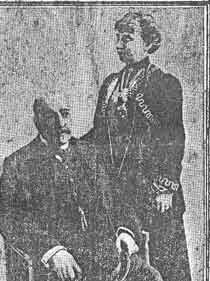
On Sunday 21 July 1912, as was customary, 67-year old Edward Hanslope Watts, Squire of Hanslope Park, accompanied by his wife Edith, left his country mansion to walk the one and a half miles to Hanslope Church. It must have been a hot and dusy walk as the temperature on the day was over 80 degrees. The bells of St. James the Great Church were pealing as they were met at the west door by the vicar Rev William J. Harkness.
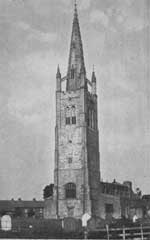
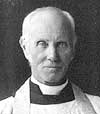
The Squire went to his traditional seat in the Watts family pew in a gallery at the east end of the north aisle. The ‘pew’ consisted of a row of chairs behind the oak-panelled front on which a tablet in memory of his father occupied a central position over door of the family vault.
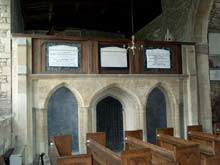
Mrs Watts, however, would have occupied a pew reserved for the family on the north side of the Church. She apparently had a good voice and could make a better contribution to the singing of the choir from that place. It would seem that the service was uneventful except that as this was the 7th Sunday after Trinity, the prescribed second lesson taken from the Acts of the Apostles contained a reference to murderers. But this had no particular significance for the unsuspecting Squire.
When the service ended the Squire and his wife left the church and proceeded along Church Walk beside the memorial grounds and down Park Road which led to their Hanslope Park mansion.
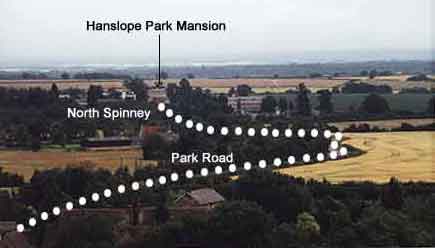
Proceeding on Park Road, the squire walked a few paces in ahead of his wife.
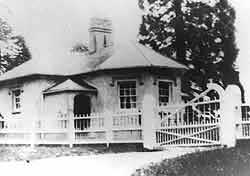
They were passing through a small strip of woodland called North Spinney. The Park’s main entrance with its gatekeeper’s lodge was twenty yards ahead of them when a shotgun was fired from their left. The Squire fell to the ground with a serious head wound from which he almost certainly died instantly. The Squire’s wife rushed to comfort him.
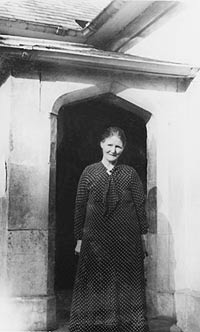
In the entrance lodge Mrs Green, the coachman’s wife heard the sound of gunfire, looked out of the window, saw the squire and his wife on the ground, and came running out. She was told to summon the doctor immediately. A second shot had hit the squire. It can never be known whether or not it was intended for his wife. If it had been, it missed its target.
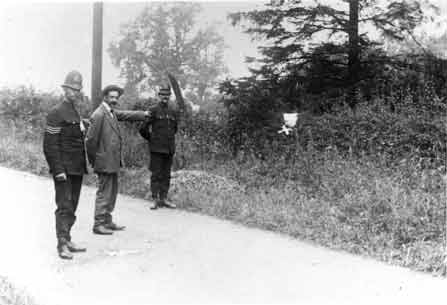
Will Green, the son of the coachman, was sent to get help. He set off for Hanslope on his bicycle, found Dr Rutherford and also his father, George Green, who immediately set off for the Park. Some local residents had already gathered, including Mr Frederick Garratt. As George Green approached the stricken squire and his wife, a further shot was heard in the woods away to the left. On entering the spinney to investigate – an act which took some courage considering the circumstances – George Green discovered another body. It was that of the Squire’s head gamekeeper, William Farrow. He was on his back; across him lay a shotgun. He had taken his own life by shooting himself through the mouth.
At this point PC Cooper, the village policeman, arrived on the scene. He had been found by William Green and had borrowed the young man’s bicycle. As he arrived he heard George Green shout that he had discovered Farrow’s body. Dr Rutherford, who had arrived shortly beforehand, pronounced Squire Watts and William Farrow dead at the scene.